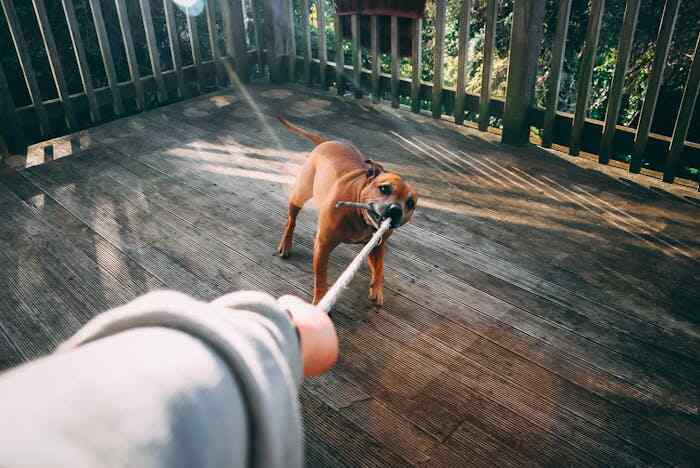Suffering a dog bite can be a physically painful and emotionally distressing experience. Beyond the immediate injuries, victims are often left wondering what legal rights they have and how to pursue justice for their suffering. In the wake of an attack, confusion and uncertainty can cloud one’s ability to make informed decisions. Whether the incident occurred in a public park, a neighbor’s yard, or on your property, knowing how the law protects you can make all the difference. We will explore the essential legal concepts surrounding dog bite cases and help you understand the important steps to protect your rights and pursue compensation.
What to Know About Your Legal Rights After a Dog Bite
1. Dog Owner Liability Laws Differ by State
One of the first factors to consider after a dog bite is how your state defines liability. In some states, dog owners are held strictly liable, meaning they are automatically responsible if their dog bites someone, regardless of whether the dog has shown previous signs of aggression. Other states apply a “one-bite rule,” which gives owners some leniency if it’s the first time their dog has attacked. Understanding which rule applies in your jurisdiction is vital.
For instance, strict liability laws typically make it easier for victims to recover damages, while the one-bite rule can complicate claims. Local leash laws and breed-specific legislation can also influence liability. If an owner failed to restrain their pet according to local ordinances, this may establish negligence and strengthen your case. Researching your state’s specific laws or consulting a dog bite lawyer can clarify how liability may be determined based on your location and the circumstances of the attack.
2. Medical Treatment is the First Priority
After a dog bite, your first and most immediate action should be to seek medical attention. Even if the wound seems minor, dog bites can lead to serious infections such as rabies, tetanus, or cellulitis. Medical documentation is also crucial for legal claims. Visiting a doctor or urgent care facility ensures your health is protected while generating a record of the injury. These records will be critical in establishing the injury’s severity and the treatment cost. Photograph the wounds, follow up on all treatments, and retain receipts for medications, appointments, or surgeries.
Sometimes, dog bites may cause nerve damage, scarring or require ongoing therapy. Proper medical documentation will support your claim for compensation related to current and future medical expenses, pain, and suffering. Taking swift action also demonstrates that you acted responsibly, which can be a factor in legal proceedings.
3. Identifying the Dog and Its Owner is Crucial
To proceed with a legal claim, you must identify the dog and the person responsible for it. This step may be more complicated if you were bitten in a public place or by a stray dog. However, the dog will have a clear owner or caretaker in most situations. Obtaining the owner’s name, address, and contact information is essential. If the bite occurred on private property, ask for any proof of rabies vaccination or licensing.
In cases involving landlords or property managers, they may also bear some liability if they allowed a dangerous dog to reside on the property. Collect witness statements and any video or photo evidence available at the scene. Animal control reports and police documentation can also provide critical information. The more evidence you gather about the dog’s behavior, prior incidents, or ownership, the stronger your legal position becomes when seeking accountability.
4. Filing an Insurance Claim or Personal Injury Lawsuit
Once the dog’s owner is identified, you may be able to file a claim with their homeowner’s or renter’s insurance policy. These policies often cover injuries caused by pets. Filing an insurance claim typically requires submitting evidence of your injuries, medical bills, and proof of the owner’s responsibility. If the insurance company denies the claim or offers an inadequate settlement, you can pursue a personal injury lawsuit.
A personal injury case can help you recover additional damages, including pain and suffering, lost wages, disfigurement, and emotional trauma. It’s important to act promptly because each state has a statute of limitations, often ranging from one to three years. If you wait too long, you may forfeit your right to sue. Understanding the difference between insurance processes and civil litigation will help you choose the path that gives you the most comprehensive compensation for your ordeal.
5. Understanding Possible Defenses by the Dog Owner
Not all dog bite cases are straightforward. The owner may present defenses to reduce or avoid liability. One common defense is provocation—if the dog was teased, hit, or provoked into aggression, the owner might argue that the bite was a natural reaction. Trespassing is another frequent defense. If you were unlawfully on the owner’s property during the attack, they might not be held fully responsible under some state laws. Comparative fault could also play a role, where your actions partially contributed to the incident, reducing the damages you’re entitled to receive. These defenses can significantly impact your claim’s outcome.
Therefore, gathering detailed evidence, including video footage, witness testimony, and official reports, is essential to countering these arguments. Knowing what defenses might be used in advance allows you to prepare a stronger case and increases the likelihood of a successful resolution, whether through negotiation or in court.
Being bitten by a dog can be a traumatic event, but understanding your rights can bring clarity and control to a difficult situation. From determining legal liability and getting prompt medical care to identifying the dog’s owner and navigating insurance or legal processes, every step you take matters. Each element—evidence gathering, understanding local laws, and preparing for possible defenses—can influence the success of your claim. By staying informed, assertive, and proactive, you can pursue the justice and compensation you deserve while helping to prevent future incidents for others.


